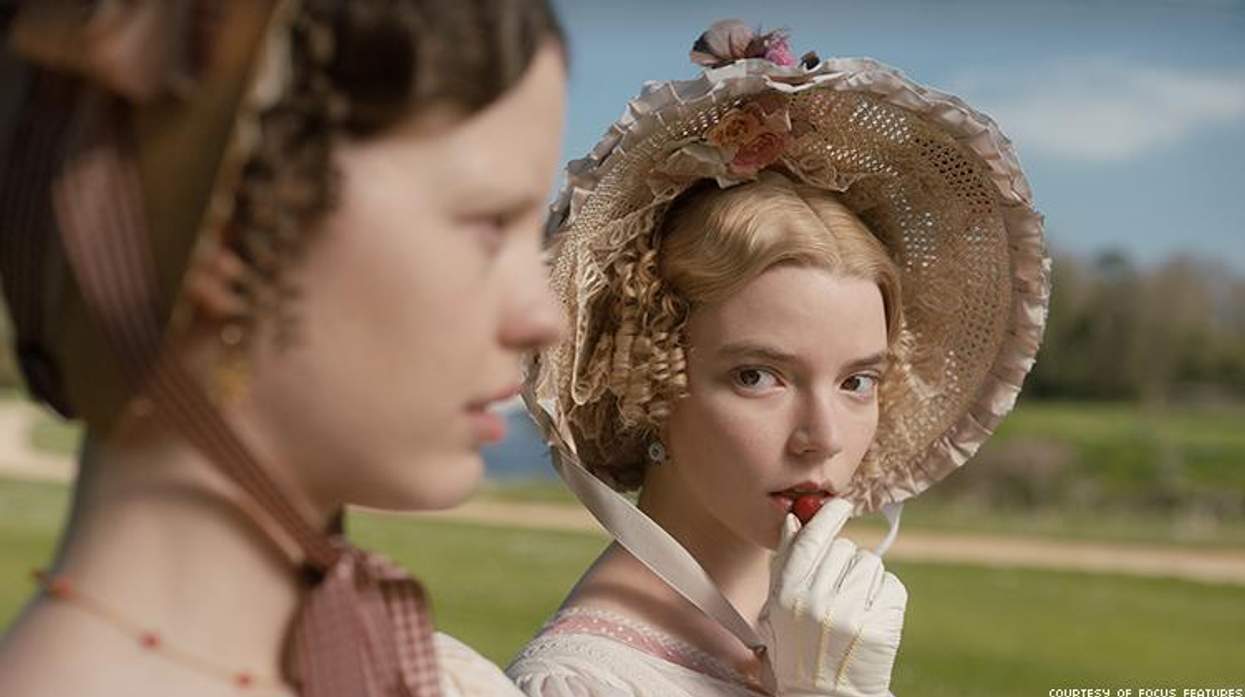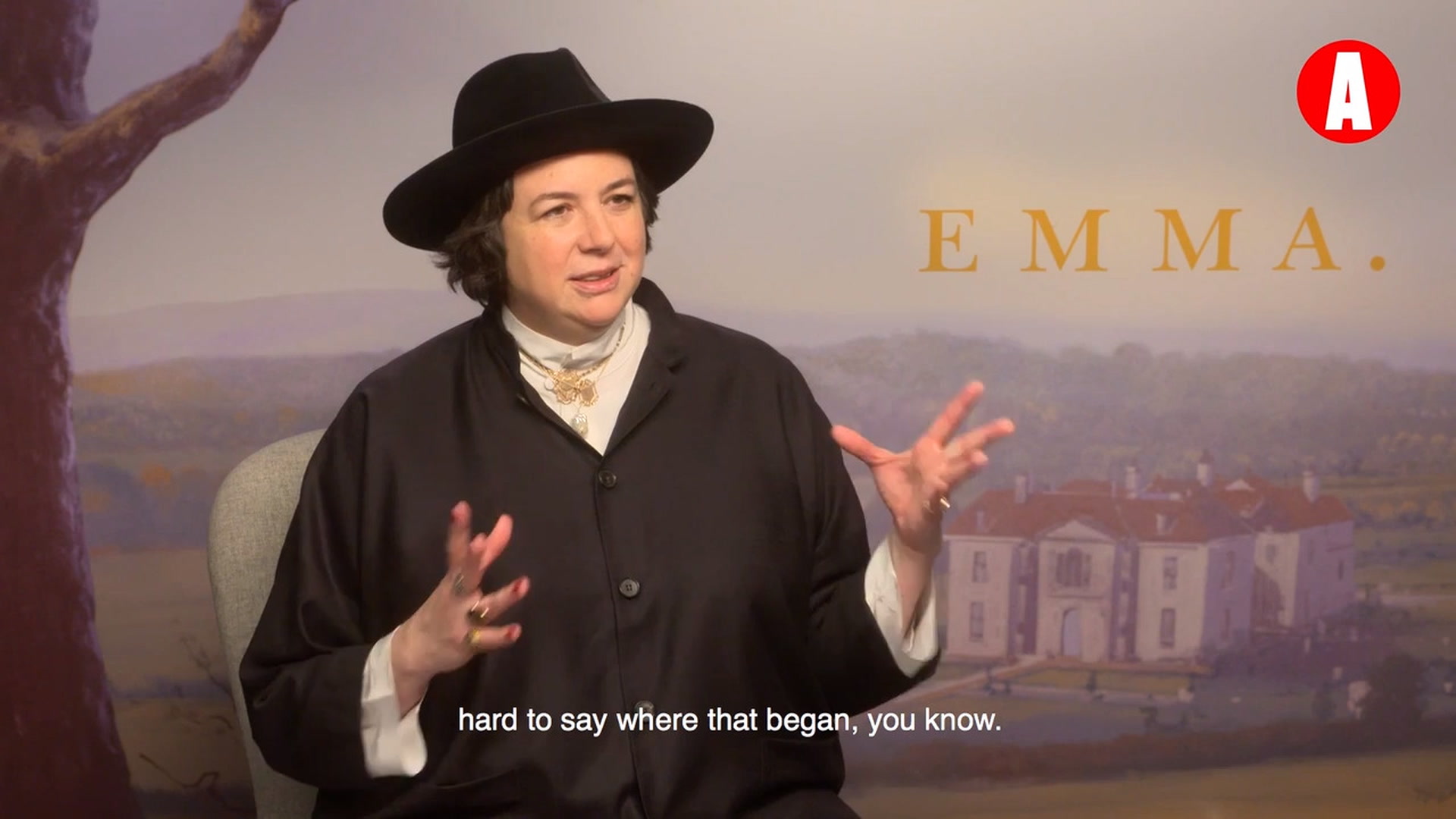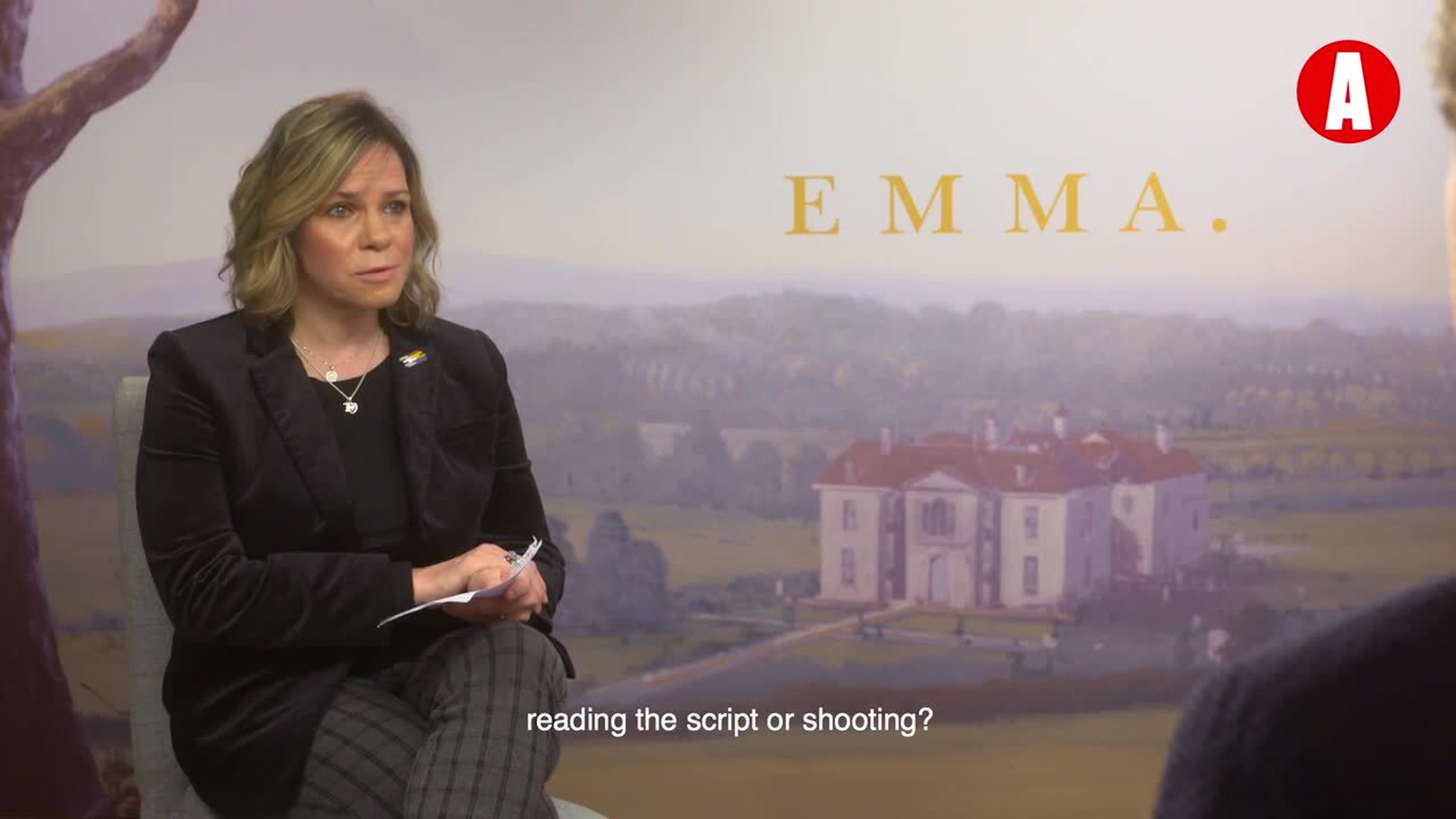The period clothing and language are all there in director Autumn de Wilde's big-screen adaptation of Jane Austen's beloved novel about the well-intentioned popular girl/matchmaker Emma Woodhouse. But de Wilde, whose resume includes having directed videos for Florence and the Machine, Beck, and Jenny Lewis, imbues her Emma. with some quirk and plenty of queer energy that is especially modern and timeless.
Emma has been famously adapted for the screen before with Gwyneth Paltrow in the titular role in 1996. And, of course, there's Amy Heckerling's updated California girl version, Clueless (1995), which starred Alicia Silverstone as Cher (Emma). But de Wilde's Emma. is particularly modern, especially with its up-and-coming stars including The Witch's Anya Taylor-Joy as Emma, Suspiria's Mia Goth as Emma's protege/girl crush Harriet, and Johnny Flynn (Beast, Vanity Fair) and Callum Turner (Fantastic Beasts: The Crimes of Grindelwald) as the men in their lives -- Knightley and Churchill, respectively.
With the exquisite cast that also includes Bill Nighy as Emma's father, de Wilde and writer Eleanor Catton excavate Austen's social commentary around marriage, class, and female agency, rendering the piece fresh and new.
"Part of Jane Austen's brilliance is I think she satirizes human experience so well," de Wilde tells The Advocate about her love of the 19th-century writer.
"Emma's an unusual character in a story from this time period because she's in a position, because she has the financial independence, to not have to marry," de Wilde says.
"There is this thing about Jane Austen, this misinterpretation that everything is about this desire to find her true love. Emma is not actually interested in finding her true love," she adds. "That's what feels modern."
"But that's not modern. That's human," the director says. "There are some people that don't want to marry. For people who are told whether or not they can marry, it's not really that everyone wants to get married, it's 'Why are you telling me I can't get married?'"
What's particularly new in this Emma. is that it leans into the intense friendship between Emma and Harriet, the young woman she wishes to help marry up to a different class.
"I think that the relationship between Emma and Harriet is the first love story," de Wilde says, unequivocally noting the film's queer love story. Although those familiar with the story know that Emma eventually weds her friend Knightley.
"Until she realized how much she realized she loved Harriet and how she couldn't live without her, then she was able to love Mr. Knightley properly," she says. "I think it's really important to remember how many different kinds of love there are and that it's not just coupling and marriage."
Meanwhile, in an interview with The Advocate, Taylor-Joy discusses young Emma's lessons in love along the way.
"By the time you get to the end [of the film], through the central character, you realize that the right place to put value is in good people who take care of each other despite social standings and preconceived notions set there by society. It's about people being kind to one another," she says.
That kindness is teased out throughout the film especially via the character of Knightley, who despite his high place in society, values people of all classes.
"What's nice is he's a man drawn by a woman. I think of him as kind of an ideal man as painted by Jane Austen in this period," Flynn tells The Advocate. "I'm not sure how many men were really like him in this time. There's a lesson for men in the way this man is drawn. There's a lesson for me in the way he was drawn."
Taylor-Joy's, Flynn's, and de Wilde's musings about the film's exercises in kindness and acceptance should resonate for LGBTQ audiences, which was part of de Wilde's mission in remaking Emma.
"The more we embrace how many different kinds of love there are in our lives the more we'll understand other people's definitions of love," de Wilde says.
Watch de Wilde below.
Watch Taylor-Joy and Flynn below.







































































Charlie Kirk DID say stoning gay people was the 'perfect law' — and these other heinous quotes